17 Signs That You May Not be Getting Enough Vitamin D
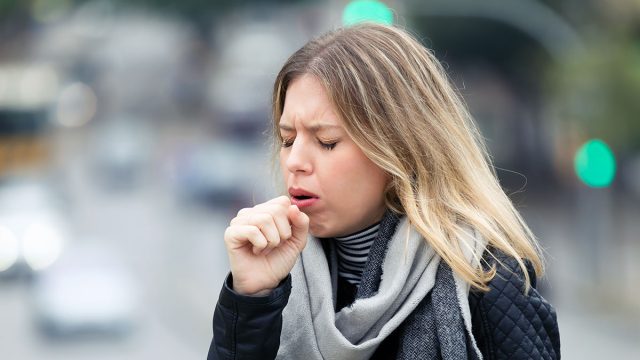
Vitamin D is vital to our wellbeing, impacting everything from bone health to proper immune function. "People typically get enough vitamin D from sun exposure: When sunlight hits the skin, the skin converts that ultraviolet radiation to vitamin D," says Yale Medicine. "People also get vitamin D from certain foods—including fish, egg yolks, and fortified milk and cereal—or dietary supplements." Here are 17 signs—and possible causes—of low vitamin D levels.
Muscle Weakness
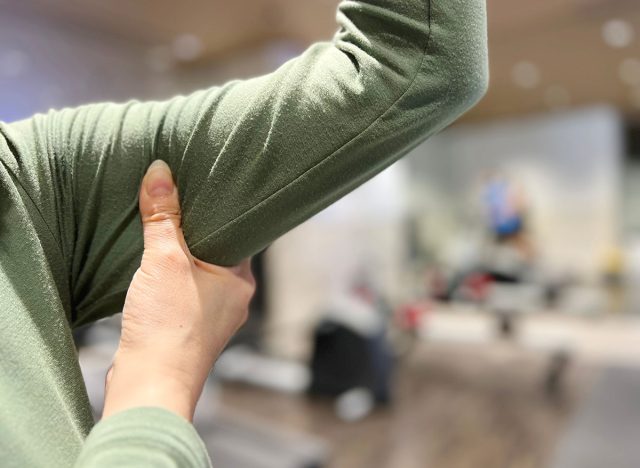
Muscle weakness is a common sign of vitamin D deficiency. " When vitamin D levels are low and the body isn't able to properly absorb calcium and phosphorus, there is an increased risk of bone pain, bone fractures, muscle pain, and muscle weakness," says Yale Medicine.
Bone Pain
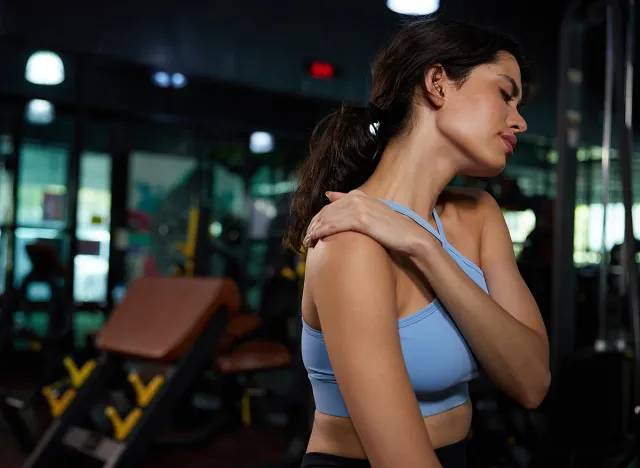
Bone pain is another common symptom of vitamin D deficiency. "Vitamin D deficiency causes muscle weakness and muscle aches and pains in both children and adults," Michael F. Holick, MD, says via Mayo Clinic Proceedings.
Fatigue
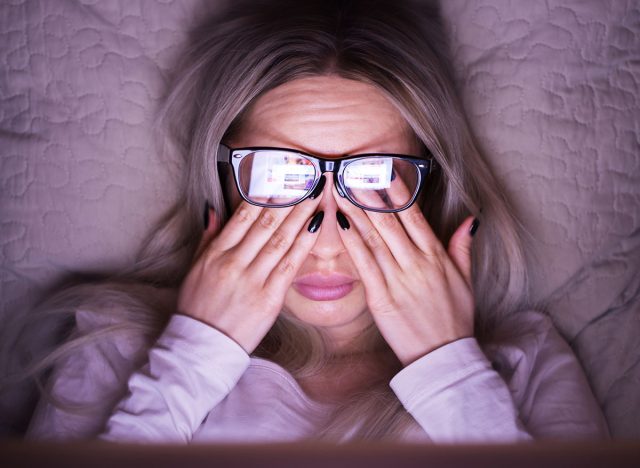
Fatigue could be a sign of vitamin D deficiency. "Most people with vitamin D deficiency are asymptomatic," says UNL Health Center. "However, if you're exhausted, your bones hurt, you have muscle weakness or mood changes, that's an indication that something may be abnormal with your body."
Depression
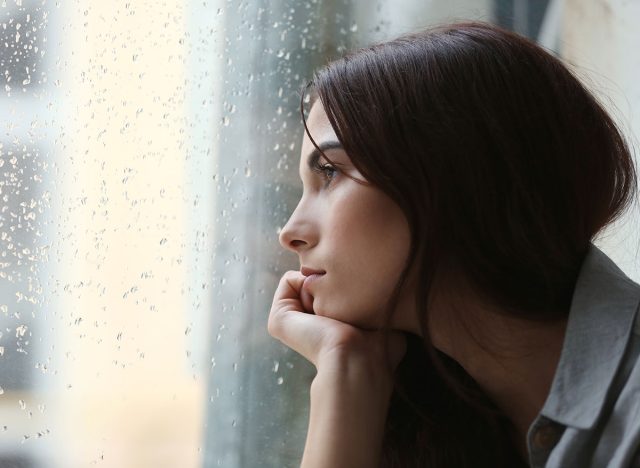
Vitamin D deficiency sometimes shows itself in mood swings and depression. "It's true people with depression are more likely to have a vitamin D deficiency. But it's not always true everyone with depression should take a vitamin D supplement," Molly Ropte, DO, tells UnityPoint Health. "If you struggle with mental illness, talk with your doctor about getting your vitamin D levels tested to determine if supplements are an option."
Vitamin D and Obesity
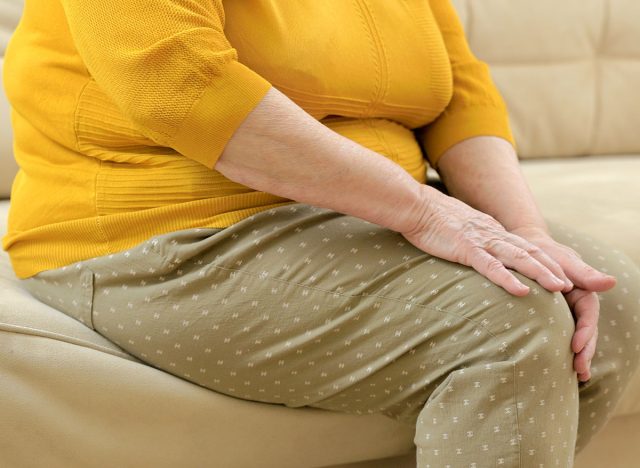
Research shows obesity and vitamin D deficiency are linked. "Vitamin D deficiency is common in people with obesity, with reported prevalence rates as high as 90%," Haylee Hannah, RD, tells UC Health. "The higher risk of deficiency is thought to be related to several factors. One contributor could be less sun exposure. In addition, since vitamin D is fat-soluble, people with higher amounts of body fat will 'sequester' vitamin D in fat cells, leading to lower amounts circulating in the blood."
Vitamin D and Celiac Disease
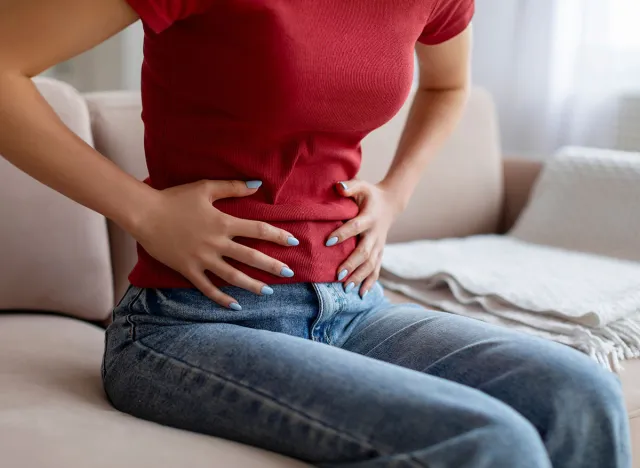
People with celiac disease may have low vitamin D levels. "Vitamin D is a fat-soluble vitamin; its absorption from the gut depends on fat absorption," according to Beth Israel Deaconess Medical Center. "Fat malabsorption in untreated celiac disease can lead to vitamin D deficiency."
Vitamin D and Kidney Disease
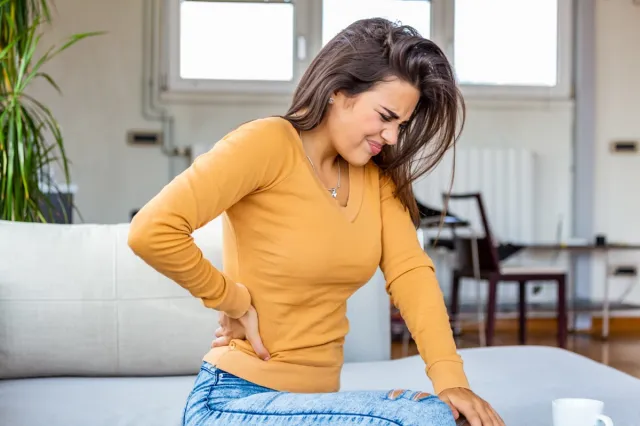
People with kidney disease may have low vitamin D. "It's not unusual for people with kidney failure to have low levels of vitamin D," renal dietitians Helen Dorough and Sara Colman tell DaVita. "Healthy kidneys are rich with vitamin D receptors and play a major role in turning vitamin D into its active form."
Liver Disease
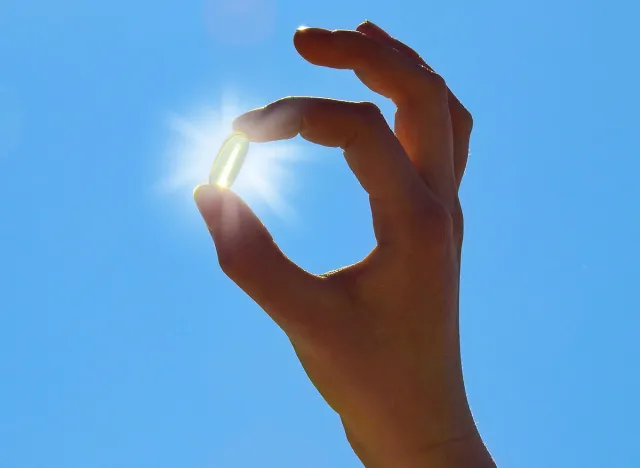
Studies show liver disease is linked to vitamin D deficiency. "Vitamin D deficiency is extremely common in chronic liver disease patients," according to an article published in World Journal of Hepatology. "Up to 93% of these patients have some degree of vitamin insufficiency. Even patients with mild liver disease are affected, although liver cirrhosis patients more commonly suffer from severe deficiency."
Vitamin D and Gastric Bypass
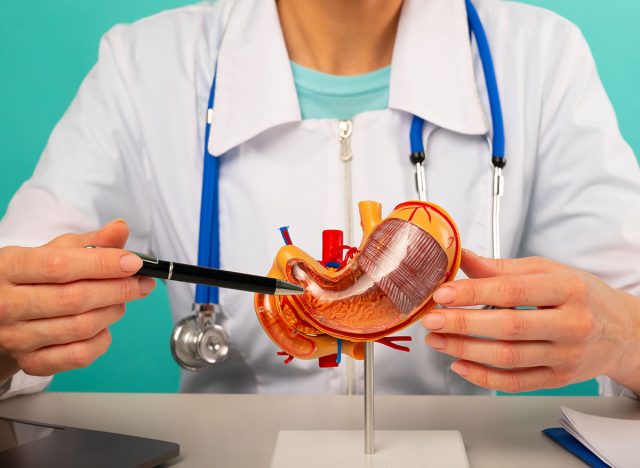
People who have gastric bypass may have low vitamin D levels. "Long-term health complications of weight-loss surgery can include bone and kidney disease due to changes in the way your body absorbs calcium and vitamin D," Heidi Bednarchuk, CNS, and Grace Fjeldberg, RDN, tell Mayo Clinic Health System.
Vitamin D and Laxatives
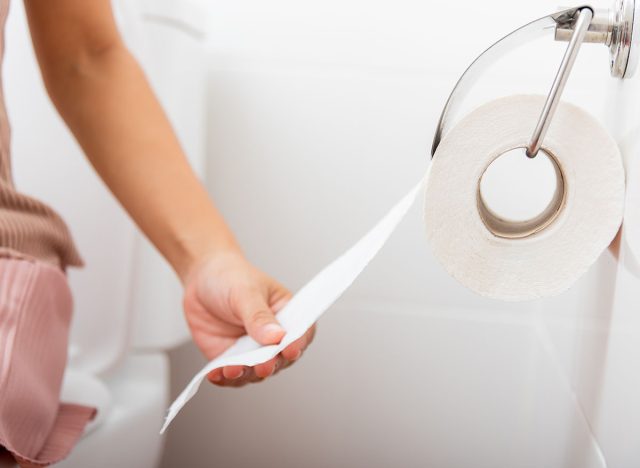
Using laxatives could lead to vitamin D deficiency. "Long-term use of high doses of stimulant laxatives can reduce vitamin D and calcium absorption," says the Mayo Clinic.
Vitamin D and Steroids
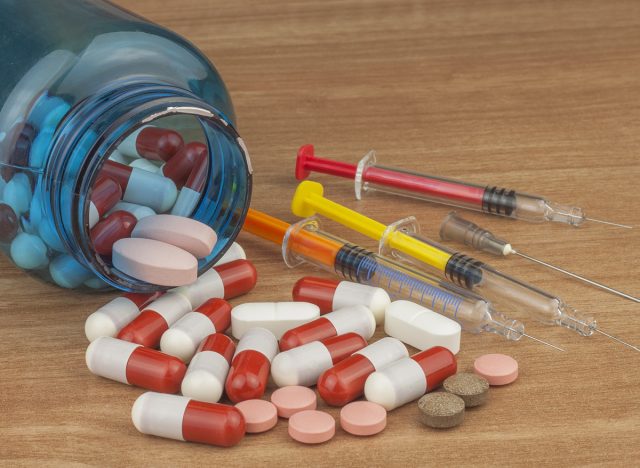
Using steroids such as Prednisone could cause vitamin D deficiency. Studies show people taking steroids are twice as likely to have vitamin D deficiency as people who are not. "Taking steroid medications such as prednisone can reduce calcium absorption and impair your body's processing of vitamin D," says the Mayo Clinic.
Vitamin D and Orlistat
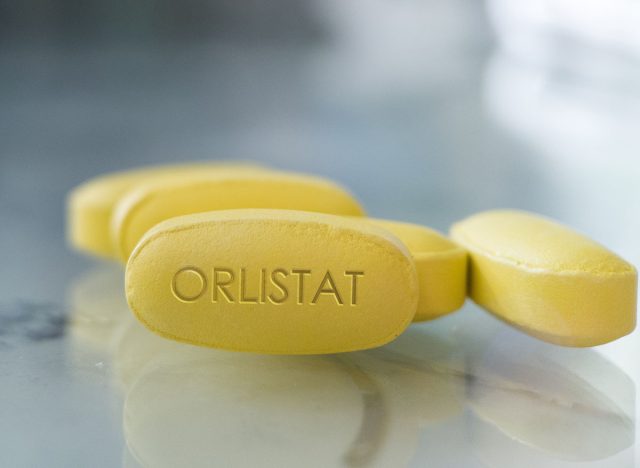
Weight loss drug Orlistat is linked to vitamin D deficiency. "Taking this weight-loss drug can reduce your absorption of vitamin D," says the Mayo Clinic. Orlistat is also known as Alli and Xenical.
Vitamin D and Cholesterol Drugs
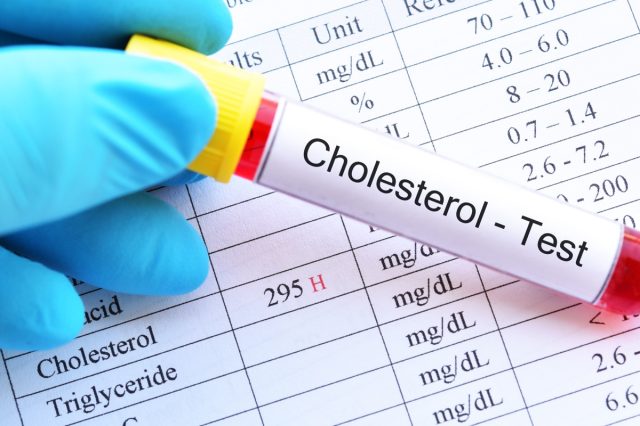
Cholesterol-lowering drugs could cause low vitamin D levels. Specifically cholestyramine (Prevalite) has been shown to impact Vitamin D levels. "Taking vitamin D with this cholesterol-lowering drug can reduce your absorption of vitamin D," says the Mayo Clinic.
Vitamin D and Seizure Drugs
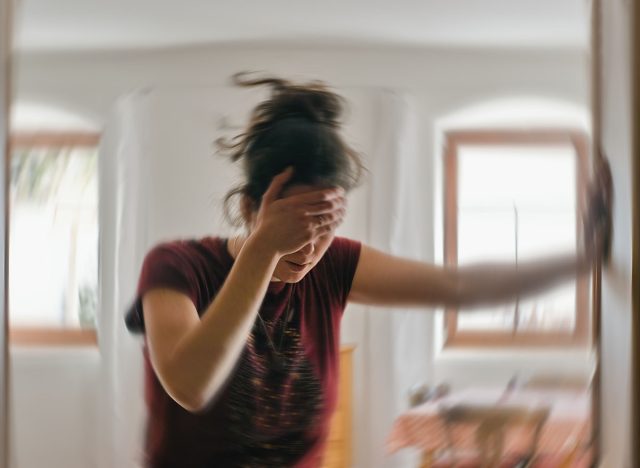
Seizure drugs could cause vitamin D deficiency. "Some anti-seizure medications interfere with how vitamin D is processed in the body," says the Epilepsy Foundation. "Supplemental vitamin D may be necessary for people who have these risk factors to maintain normal blood levels."
Vitamin D and Tuberculosis Drugs

Taking tuberculosis drugs may lead to vitamin D deficiency. "Taking rifampin or isoniazid may deplete vitamin D," says St. Lukes Hospital. "Vitamin D, along with calcium, keeps your bones strong and healthy."
Vitamin D and Age
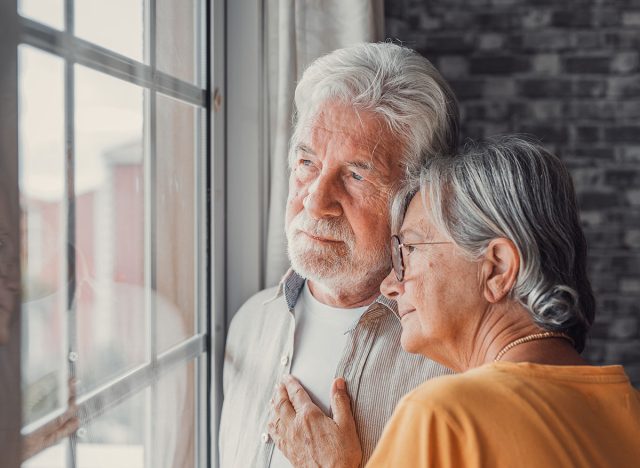
Vitamin D deficiencies may be more likely at a certain age. "Your skin's ability to make vitamin D decreases with age, so people over the age of 65 years are especially at risk for vitamin D deficiency," says the Cleveland Clinic. "Infants are also at risk of not receiving enough vitamin D. This is especially true for infants who are only fed breast milk, as it contains only a small amount of vitamin D."
No Sun Exposure

While sun protection is important, some sun exposure is beneficial. "It has been estimated that 90% or more of our required vitamin D comes from exposure to sunlight," Dr. Holick says. "Anything that interferes with the penetration of solar ultraviolet radiation into the skin, such as increased melanin pigmentation and sunscreen use, will diminish the cutaneous production of vitamin D3." And if you enjoyed this article, don't miss 12-3-30 Walking Method: 20 Proven Tips to Lose Weight Faster.




